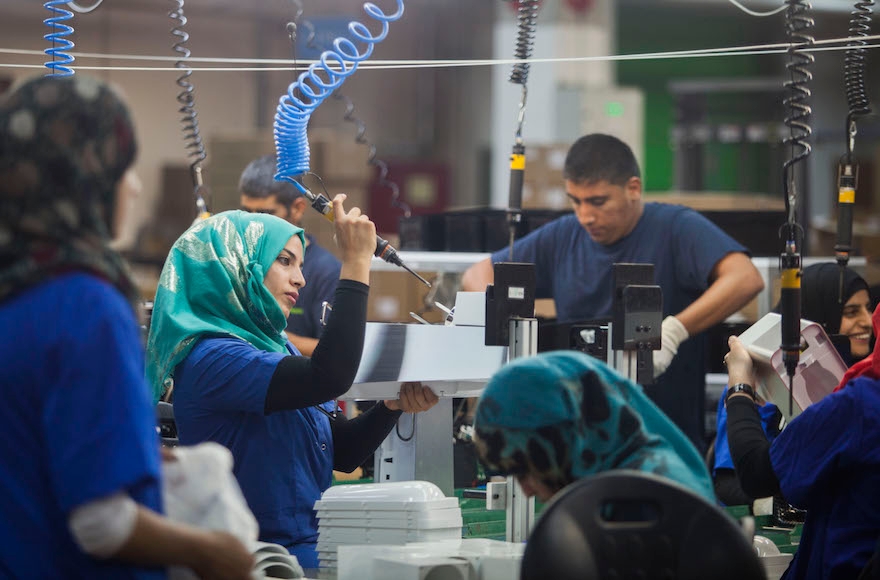SodaStream hires hundreds of new employees in southern Israel
Published July 28, 2016

Employees working at the new SodaStream factory built deep in Israel’s Negev Desert next to the city of Rahat, Israel, that will replace the West Bank facility when it shuts down in two weeks time, Sept. 2, 2015. (Dan Balilty/AP Images)
JERUSALEM (JTA) — Southern Israel-based SodaStream has hired 300 new employees for its production plant in the Negev Desert.
The company now has 1,400 employees in the Idan Hanegev industrial park near Lehavim, one-third of them Bedouin Arabs from the surrounding area, the Israeli business daily Globes reported.
The company, one of the largest employers in the Negev, will hire 70 more people in the coming weeks, according to the report published Wednesday.
The company is also buying 20 new manufacturing machines to keep up with the demand for home carbonated drinks products in Israel and in the West. Figures published SodaStream show that demand for its products has risen sharply since May 2015, mainly in the Israeli market, but also in other markets, according to Globes.
In October 2014, SodaStream announced it would close its West Bank factory in Maale Adumim and move to southern Israel in the face of international pressure from the Boycott, Divestment and Sanctions movement, or BDS, which seeks to hurt Israel’s economy over its policies toward the Palestinians. The movement claimed that SodaStream discriminated against Palestinian workers and paid some less than Israeli workers.
Some 500 Palestinian employees lost their jobs at that time. Israel gave the remaining 74 employees permission to enter the country and continue to work for SodaStream until the end of February.
“The last day they worked here was a heartbreaking spectacle,” SodaStream Israel general manager Tamir Melamud told Globes in the article published Wednesday. “Jews, Christians, and Muslims stopped working when those workers left the factory. We just all stood and wept. Some of them had worked for us for 10 years. They were well-liked and dedicated, and because of politics and permits, they’re no longer here. We’re still in touch with them, and hope that someday, things will work out, they’ll get permits, and we’ll all be glad to have them back. This place personifies coexistence and the melting pot. Even at times of tension, disputes remain foreign to this place.”














